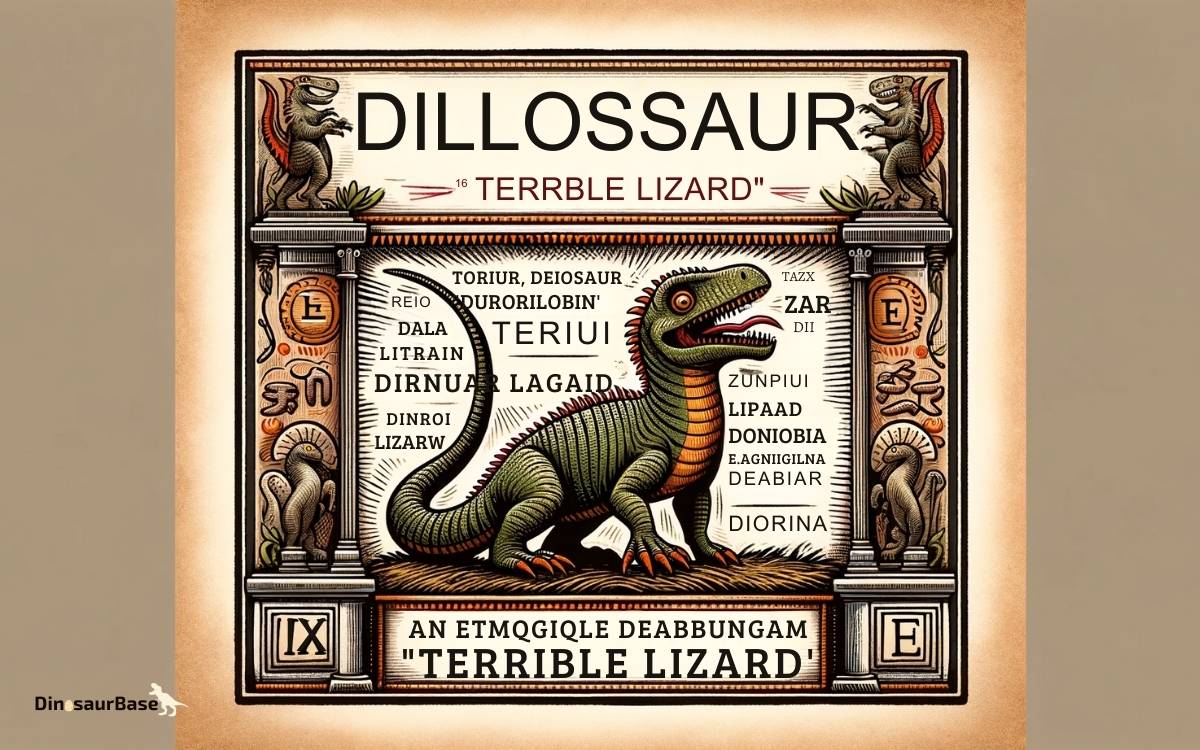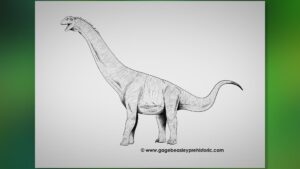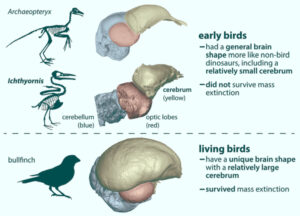How Does “Dinosaur” Translate in Latin? Understanding Its Meaning
The Latin translation of “dinosaur” is “dinosaurus,” originating from Greek elements. It means “terrible lizard” or “fearsome lizard.”
Dinosaurs have long captivated the imagination of people of all ages. These colossal creatures roamed the Earth millions of years ago, leaving only fossils as clues to their existence.
The term “dinosaur” itself debuted in the early 19th century, coined by Sir Richard Owen, a British paleontologist.
He combined two Greek words, “deinos” (meaning terrible) and “sauros” (meaning lizard), to describe these awe-inspiring reptiles.
This terminology marked the beginning of a new chapter in paleontology, leading to innumerable discoveries about the prehistoric world.
Our understanding of dinosaurs has shaped not only scientific knowledge but also popular culture, inspiring movies, literature, and exhibitions that fuel the wonder surrounding these ancient creatures.

The Etymology Of ‘dinosaur’
The term ‘dinosaur’ has fascinated people for generations. But, where does this word come from? The answer lies in a journey back to ancient languages. This post unwraps the linguistic origins of the beloved ‘dinosaur’ word.
Roots In Ancient Greek
To understand ‘dinosaur’, we start with Ancient Greek. The word ‘dinosaur’ finds its roots in two Greek words. ‘Dino’ means terrible.
‘Saur’ translates to lizard. Put together, they mean ‘terrible lizard’. This pairing perfectly described the giant reptiles when first discovered.
- Dino – Terrible
- Saur – Lizard
The Latin Influence
Despite its Greek roots, ‘dinosaur’ also has a link to Latin. Scientists using Latin to name creatures adopted ‘dinosaur’.
They kept its original Greek meaning. Latin helped spread the word to many languages worldwide. Thus, the term ‘dinosaur’ remains unchanged in English today.
Sir Richard Owen And The Birth Of ‘dinosaur’
The word ‘dinosaur’ conjures images of massive, extinct reptiles.
It’s a term ingrained in our history books, museums, and movies.
Yet, this term is relatively modern, thanks to Sir Richard Owen.
Let’s dive into how this term came to be and understand its Latin roots.
Coining A New Term
Sir Richard Owen, a British paleontologist, introduced ‘dinosaur’ to the world.
He needed a name for the giant reptiles he studied.
In 1842, he presented ‘Dinosauria’ to the scientific community.
This name comes from the Greek words “deinos” (terrible) and “sauros” (lizard).
The Significance Of Owen’s Contribution
Owen’s work changed our understanding of the prehistoric world.
His term ‘dinosaur’ specifically referred to a group with distinct traits:
- Three or more sacral vertebrae
- Hip structure
- Upright stance
This description differentiated dinosaurs from other reptiles.
‘Dinosauria’ became the official term for these fascinating creatures.
Translating ‘dinosaur’ Into Latin
Travel back in time when the mighty dinosaurs roamed the Earth. Their name itself carries a legacy. It’s born from the Greek words ‘deinos’ and ‘sauros.’ ‘Deinos’ means ‘terrible,’ and ‘sauros’ means ‘lizard.’ Let’s discover how ‘dinosaur’ translates into Latin.
Linguistic Equivalents
In Latin, words evolve, just like the creatures they describe. ‘Dinosauria’ is what experts say today. Though Latin often borrows from Ancient Greek, this blend is rare. ‘Dinosaurus’ would be a direct Latin version.
- Deinos (Greek) – Terrible
- Sauros (Greek) – Lizard
- Dinosauria (Latin) – Dinosaurs
- Dinosaurus (Latin) – Dinosaur
Modern Usage In Latin Contexts
Modern Latin still cherishes ancient words. In science, ‘Dinosauria’ is used globally. This includes textbooks, museums, and scholarly works. Latin helps scientists across the world speak in unison about these historic beings.
| Term | Language | Meaning |
|---|---|---|
| Dinosauria | Latin | Dinosaurs |
| Dinosaurus | Latin | Dinosaur |
| Deinos + Sauros | Greek | Terrible Lizard |
Scholars, enthusiasts, and children learn Latin names to identify dinosaurs. It bridges past and present, species and discovery. This way, ‘Dinosauria’ connects us with the ancient world.
Latin And The Language Of Science
Latin, once a thriving language of the Roman Empire, continues to echo through time. In the world of science, Latin words offer a universal passport for discovery, naming, and classification.
The term “dinosaur” itself comes from the Greek words “deinos” (terrible) and “sauros” (lizard), but Latin’s influence is deeply woven into the very fabric of scientific terminology.
Latin’s precision and historic precedent make it an ideal choice for the naming of new discoveries.
Here’s why:
- Clarity: Latin terms reduce confusion across languages.
- Consistency: The language provides uniformity in scientific naming.
- Permanence: Latin is a “dead” language, meaning it doesn’t evolve.
- Descriptive: Latin words can describe characteristics succinctly.
For example, “Tyrannosaurus rex,” meaning “Tyrant Lizard King,” tells a story in just two words. The use of Latin ensures that the majesty of this prehistoric creature is recognized worldwide, without the barriers of modern language differences.
Latin remains alive in labs and field studies around the globe. Scientists still lean on this ancient tongue to coin terms for newly discovered species, phenomena, and technological advances. Its ongoing use is a nod to the resilient legacy of a language that shaped the Western world.
Even as the world progresses, Latin connects us to the past and provides a stable foundation for the future of scientific exploration:
- Heritage: It honors the traditions of early scientific work.
- Universality: It allows global scientific communication.
- Endurance: It stands the test of time, unlike fluctuating modern languages.
Therefore, the name “dinosaur,” while not Latin, is deeply associated with Latin’s cousin, Ancient Greek, and shows how classical languages have irrevocably framed our understanding of the natural world.
The Cultural Impact Of Dinosaurs
When we think of dinosaurs, we see more than just giants of the past. Dinosaurs carry a significant cultural weight. These creatures spark our imagination.
They transport us to a world long gone. As symbols of awe-inspiring power and mystery, dinosaurs have left a lasting imprint on human culture.
Dinosaurs In Literature And Film
Dinosaurs have roared through pages and screens, captivating audiences worldwide. Literature has brought dinosaurs to life for readers of all ages. They star in action-packed adventures and cautionary tales about nature.
- “Jurassic Park” became a bestseller. It turned into a blockbuster film franchise.
- Dinosaurs highlight the power of imagination in children’s classics.
- Science fiction uses dinosaurs to explore themes of evolution.
Films have immortalized these prehistoric giants. Stunning visual effects make dinosaurs appear real on screen. They engage viewers in narratives of survival, coexistence, and conquest.
- Dinosaur films range from terrifying to heartwarming.
- Animated movies introduce kids to dinosaur friendships.
- Dinosaur documentaries educate while they entertain.
Dinos In Education And Pop Science
Dinosaurs serve as gateway creatures to the world of science. They stimulate curiosity in children, encouraging them to explore.
- School curricula often include dinosaur units to teach about history and science.
- Museums showcase dinosaur fossils, making learning tangible and engaging.
- Pop science books and articles share exciting dinosaur discoveries.
Interactive experiences bring dinosaurs closer to the public. Dinosaur-themed parks and exhibits give visitors a glimpse of the Mesozoic era.
- Educational toys and games foster a love for paleontology.
- Scholarly work on dinosaurs gets translated for easy understanding.
- Documentaries play a role in spreading knowledge about these ancient beasts.
The Fascination With Prehistoric Creatures
The allure of prehistoric beasts extends far beyond their immense size and peculiar forms. The mention of “dinosaur,” a term rooted in Latin, sparks wonder and curiosity in people of every age. This profound interest connects us with a world that existed millions of years before our time.
Public Perception Of Dinosaurs
Dinosaurs capture the imagination like no other creatures in history. Their mighty presence in media and culture has shaped our views.
Children’s books, movies, and toys introduce these giants as fascinating subjects of discovery.
- Majestic creatures that roamed the Earth
- Often depicted as fierce predators or gentle giants
- Important symbols of Earth’s incredible history
The term “Dinosauria” itself comes from the ancient Greek words for “terrible” and “lizard.” This translation emphasizes their perceived ferocity and size. In Latin, similar words describe these awe-inspiring animals.
The Role Of Paleontology In Unveiling Prehistoric Life
Paleontology plays a key role in uncovering facts about these ancient beings. Scientists use fossils to piece together dinosaur lifestyles, habits, and environments.
| Activity | Impact on Dinosaur Understanding |
|---|---|
| Dig Sites | Unearth bones and habitats from various periods |
| Laboratory Analysis | Reveal diets, growth patterns, and causes of extinction |
| Computer Simulations | Show movement and behavior of dinosaurs |
Fossils guide scientists in creating accurate depictions of prehistoric life. Fascination grows as new discoveries challenge past beliefs, demonstrating dinosaurs’ diversity and complexity.
Frequently Asked Questions For How Does “dinosaur” Translate In Latin? Understanding Its Meaning
What Does The Latin Word Dinosaur Mean?
The Latin word “dinosaur” originates from Greek, meaning ‘terrible lizard’.
What Does Dinosaur Literally Mean?
“Dinosaur” literally means “terrible lizard,” originating from the Greek words “deinos” (terrible) and “sauros” (lizard).
What Is The Root Word For Dinosaur?
The root word for “dinosaur” is derived from the Greek terms “deinos,” meaning “terrible,” and “sauros,” meaning “lizard. “
What Is The Meaning Behind Dinosaur?
The term “dinosaur” comes from the Greek words “deinos,” meaning terrible, and “sauros,” meaning lizard, denoting their once imposing presence on Earth.
Conclusion
Unraveling the roots of ‘dinosaur’ leads us back to ancient Latin and Greek. We’ve explored this term’s etymology and significance to grasp our prehistoric fascination.
Embrace this linguistic journey; let’s continue to uncover the past’s secrets together. Share your insights and join the cultural conversation.






